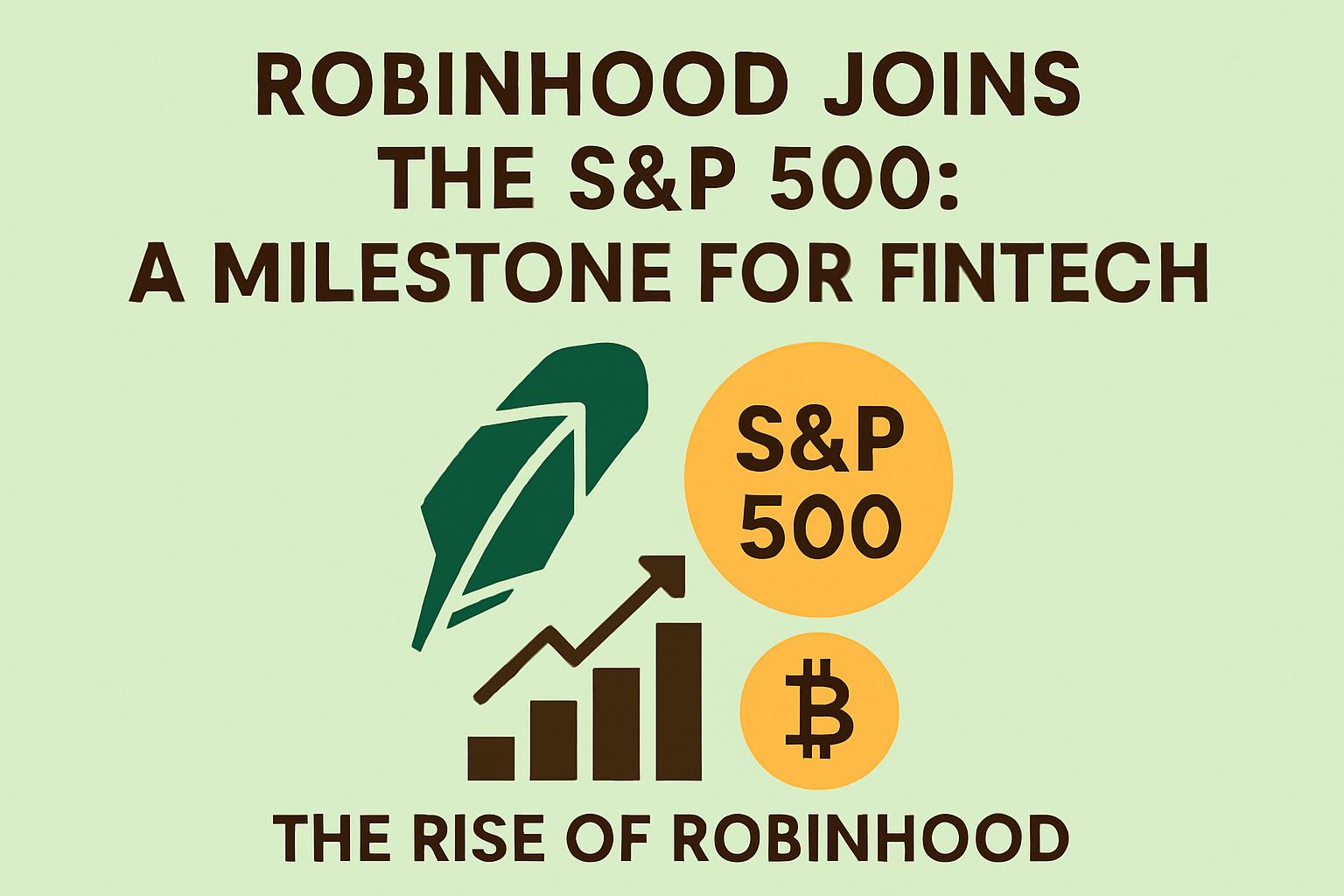The Rise of Robinhood
In a groundbreaking move symbolizing the rise of fintech in the global finance landscape, Robinhood Markets Inc. is set to become a part of the S&P 500 index, replacing Caesars Entertainment. This news marks a significant achievement for Robinhood, underscoring its evolution from a small retail investor platform to a mainstream stock and cryptocurrency trading hub. Robinhood’s market value soared by 156.72% this year, closing at $101.25, reflecting its growing significance in traditional financial markets.
A New Chapter for Robinhood
Starting September 22, Robinhood will officially join the S&P 500, prompting numerous passive funds and ETFs tracking the index to adjust their portfolios. This transition will likely result in a flurry of buying activity. Since its inception in 2013, Robinhood has disrupted the traditional brokerage environment with its zero-commission trading policy, attracting millennials and Gen Z investors with its intuitive mobile app. Its user-friendly approach has democratized stock market investment and reshaped how retail investors engage with financial markets, contributing to the company’s nearly doubled stock price this year, now valued at approximately $9 billion.
Other New Entrants to the S&P 500
Besides Robinhood, other rapidly growing companies like AppLovin Corp and Emcor Group are joining the S&P 500. AppLovin, based in Palo Alto, California, offers marketing and monetization platforms for app developers, boasting a 7% stock increase following the announcement. Meanwhile, Emcor Group, a comprehensive contractor involved in electrical engineering and energy facility maintenance, saw a 2.2% stock rise. These inclusions highlight the dynamic nature of market indices as they adapt to include diverse industries and emerging growth sectors.
Fintech’s Growing Influence
With Coinbase’s successful entry into the S&P 500 earlier this year, Robinhood’s addition further emphasizes the growing influence of fintech startups in the U.S. capital markets. The trend reflects a shift from traditional to digital finance, with financial investment apps catering increasingly to younger, tech-savvy retail investors. This transition indicates a broader acceptance and integration of digital assets and retail trading platforms within mainstream financial structures, showcasing fintech’s transformative impact on global finance.
The article originally appeared in ABMedia as “Robinhood to Replace Caesars Entertainment in the S&P 500 Index”.

![[News] Bitcoin at a Turning Point? 10x Research Signals a Bullish Macro Shift Ahead](https://cryptoexplores.com/wp-content/uploads/2025/06/new20250616.jpg)
![[News] Binance Lists $HOME, the Gas-Free, Bridge-Free All-in-One DeFi App](https://cryptoexplores.com/wp-content/uploads/2025/06/news20250617.jpg)